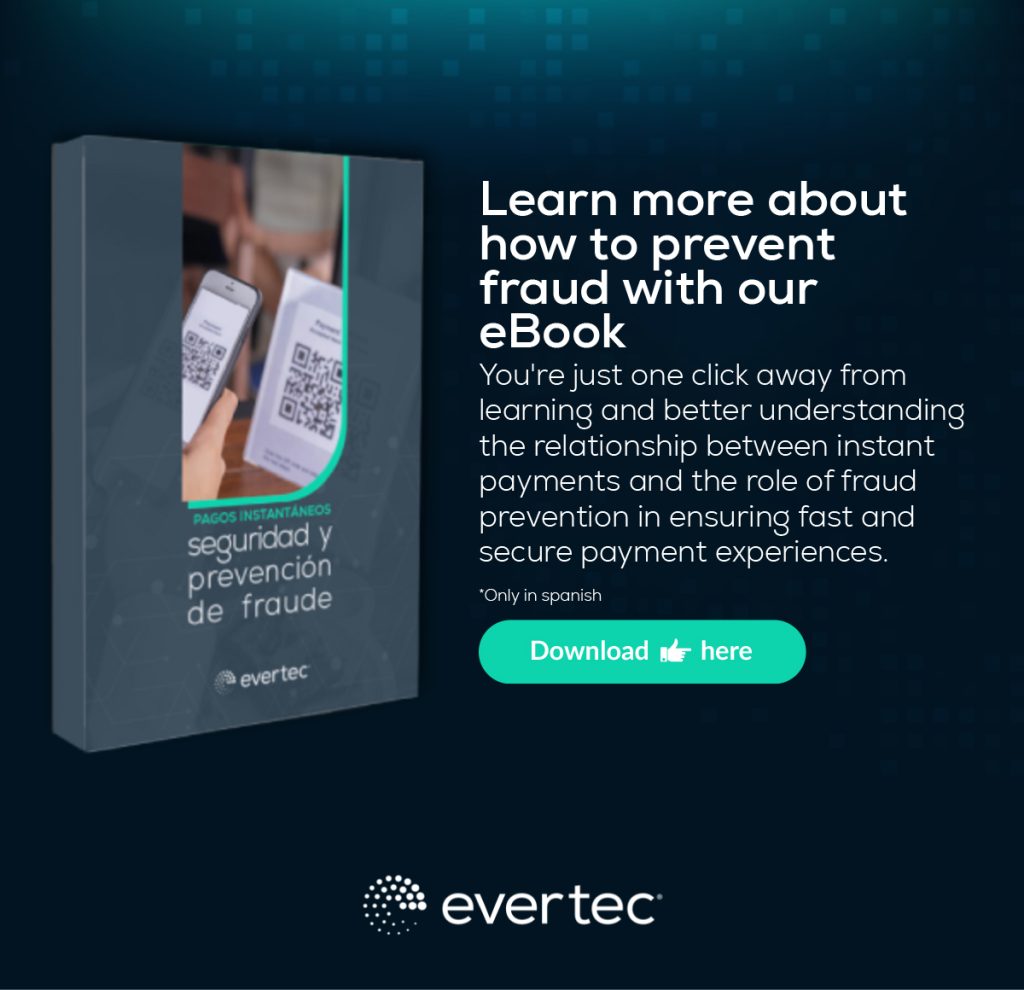- Phishing, vishing, smishing, and ransomware are some of the most common forms of internet fraud.
- Deleting suspicious emails, not opening links or files from unknown senders, updating the antivirus software, and verifying that a webpage is secure (https) are just some recommendations to prevent ecommerce fraud.
(San Juan, P.R., April 23, 2020) The worldwide emergency brought about by COVID-19 has paved way to digital channels gaining even more importance than they already had in the globalized world. As a leading technology company with presence in 26 Latin American countries, Evertec offered some recommendations for individuals to ensure their digital payments are secure especially during this pandemic.
As we have unfortunately witnessed, there are some who seize the COVID-19 worldwide crisis as an opportunity to spread fake news, to attack by way of fear, and carry out online scams. “Criminals have been taking advantage of the COVID-19 outbreak. Reports1 state that cybercriminals and APT (advanced persistent threats) groups are attacking individuals and enterprises with malware and ransomware, which encrypt information with extortion messages asking for money to unblock the data contained in their electronic devices. These attacks generally come through emails that seem to originate from known organizations, which are considered trustworthy, such as government agencies or international organizations like the World Health Organization (WHO). The public must be aware so as not to fall victim to these tactics,” stated Deoscoidy Sánchez, Chief Information Security Officer at Evertec.
According to Sánchez, many of these emails offer money or rewards, and others pretend to have found a cure for the coronavirus. “Something they all have in common is that they ask for some kind of response from the individuals or demand they take immediate action, such as responding an email or clicking on a link. The assailant’s ultimate objective is to obtain money or personal data, such as passwords or sensitive information that can be used for identity theft or to commit financial fraud. In view of that, it is advisable to consult official sources and directly access the pages of these known entities.”
It is important to note that these types of fraud, which regularly start with emails (phishing), text messages (smishing), contact through social platforms, or via phone calls (vishing), are very convincing and use different tactics to convince the public of their legitimacy and that the message must be answered with urgency.
(Continues)
Some of Sánchez’s recommendations to prevent cyber fraud are:
- Delete or omit suspicious emails or text messages from unknown senders.
- Do not provide your personal or financial data through email.
- Do not open email files that you have not been expecting. In particular, do not open those emails with COVID-19 as their subject.
- Do not open links to sites that invite you to click on banners that offer reimbursements, payments, prizes, or show alerts that your account has been blocked. If you open the link, you must not enter your passwords or provide personal or financial information. When in doubt, contact the sender, financial institution, or agency, and verify the email’s authenticity.
- Maintain your antivirus and operative system (Windows, Android, iPhone iOS, etc.) updated on the device that you use to access the internet.
- Verify that all sites have the safety lock icon before entering personal data in transaction forms.
- Do not trust offers or ads with suspiciously low prices.
- If someone calls you with pretexts of reimbursements, payments, prizes, or money disbursements in general, do not provide passwords or personal or financial information.
The truth is that, as technology advances and the digital world offers more alternatives to perform transactions and process operations online, new and more sophisticated forms of fraud will also continue to arise. For this reason, Evertec emphasizes the importance of ensuring all your operations are performed on secure and certified platforms, as well as in formal and recognized stores, that provide guarantees and greater safety to individuals.
1“Advisory: COVID-19 exploited by malicious cyber actors,” created jointly by the United Kingdom’s National Cyber Security Centre (NCSC), United States Department of Homeland Security (DHS), and Cybersecurity and Infrastructure Security Agency (CISA).
# # #
About Evertec: EVERTEC (NYSE: EVTC) is a leading company that provides transaction processing services in Latin America, featuring a wide range of merchant transaction acquisition, payment processing, and business process management services. Evertec manages an electronic payment network that processes over 2.1 billion transactions a year and provides comprehensive processing services for banking solutions, cash handling, and technology outsourcing. Evertec also owns and operates the ATH® Network, one of the main PIN debit networks in Latin America. Based in Puerto Rico, it offers services to 26 countries in the region.
Media contact:
Brenda Agosto +1 (787) 472-7633 brenda.agosto@everteccinc.com. Puerto Rico


